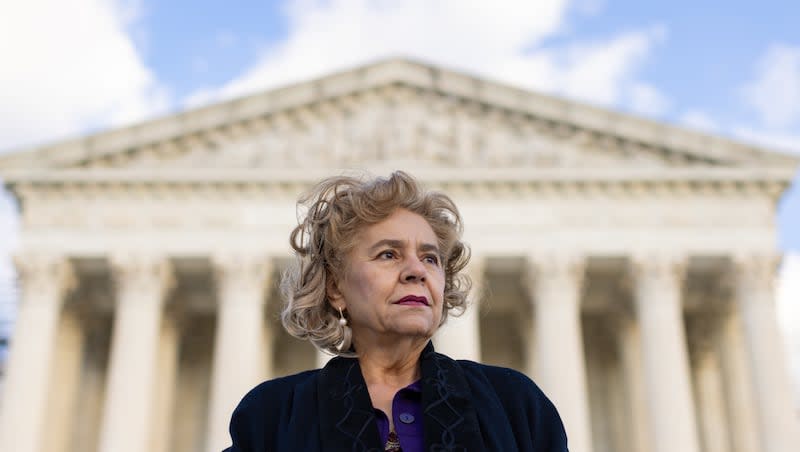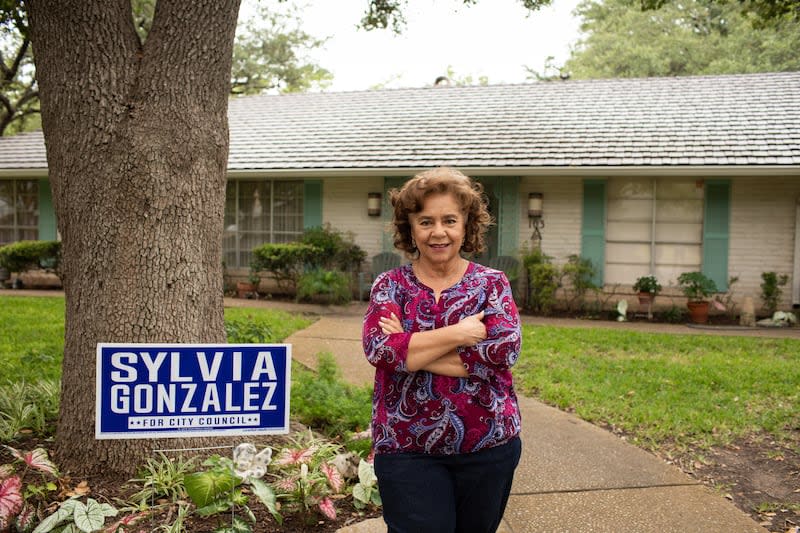Supreme Court sides with woman suing city officials over arrest that she says was political retaliation

- Oops!Something went wrong.Please try again later.
A decision handed down by the Supreme Court means a Texas woman can continue to sue over her arrest, which she says was retaliation for criticizing a city manager.
The woman, Sylvia Gonzalez was elected to the city council in Castle Hills, Texas in 2019. While she was campaigning, Gonzalez heard complaints about the city manager, and after her election she started to help gather signatures to oust the city manager. The petition became the subject of a city council meeting that lasted two days.
When the mayor asked for the petition, Gonzalez said he had it, not her. When Gonzalez was asked to check her binder, she found the petition and said she didn’t intend to put it in her binder. The incident triggered an investigation and Gonzalez was charged with tampering with a government document.
Gonzalez was arrested and spent the evening in jail. The charges were dropped and she said stepped back from politics as a result of the incident.
A while after, Gonzalez sued city officials and the private attorney who led the investigation and claimed she was arrested in retaliation for the petition, alleging her First Amendment rights were violated.
To support her case, Gonzalez included records of other times the misdemeanor she had been charged with have been levied against other people and those cases usually dealt with fake Social Security numbers, green cards or driver’s licenses.
The defendants moved to dismiss Gonzalez’s suit. While the District Court denied that motion, Gonzalez’s case made it up to the U.S. 5th Circuit Court of Appeals, which ruled against her, saying that she did not provide comparative evidence of “otherwise similarly situated individuals who engaged in the same criminal conduct but were not arrested.”
But this week the Supreme Court ruled 8-1 in favor of Gonzalez. Justice Clarence Thomas was the dissent.
In an signed opinion, justices said “the Fifth Circuit took an overly cramped view of Nieves.” In other words, the court said the Fifth Circuit had defined too narrowly what qualified as comparative evidence.
“The only express limit we placed on the sort of evidence a plaintiff may present for that purpose is that it must be objective in order to avoid ‘the significant problems that would arise from reviewing police conduct under a purely subjective standard.’”
Justice Samuel Alito released a concurring opinion “to provide further guidance on the scope of that decision.” Justice Brett Kavanaugh wrote a concurring opinion, too.
Justice Ketanji Brown Jackson wrote a concurring opinion with Justice Sonia Sotomayor. Writing about evidence from Gonzalez, the justices wrote, “Those categories of evidence, too, can support the conclusion that Gonzalez ‘was arrested when otherwise similarly situated individuals not engaged in the same sort of protected speech had not been.’”
Thomas, the lone dissent, said he was “not persuaded that an abuse-of-process claim is analogous to Gonzalez’s retaliatory-arrest claim.”
“I would adhere to the only rule grounded in history: Probable cause defeats a retaliatory-arrest claim. I respectfully dissent,” said Thomas.


